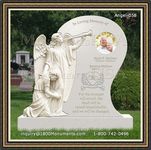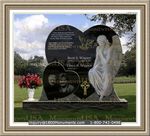|
Facts To Expect When Visiting A Jewish Funeral Service
The rules of etiquette that apply to the burial customs of this religion have many similarities to all funerals. Jewish Funeral Etiquette dictates, as all funerals do, that it is a time to express sorrow. Family and beloved friends all talk about the good times they shared with the decedent.
From time of death, the body of the deceased is to be observed continuously until it is buried. Usually a family member oversees the preparation for the burial ceremony. During the washing it is traditional to keep the body facing up.
Males complete the preparations for males. Females prepare the female decedent. Each individual is washed and then covered in a white shroud. Males are buried with prayer shawls that have a tassel removed. Everyone, rich or poor deserves a decent burial. By using simple garments for all, equal treatment and respect is assured.
A wooden coffin is used because a body is supposed to turn to dust eventually. Holes are drilled in the bottom of the casket for that reason. People show sorrow by tearing at their outer clothing.
The funeral is conducted no more than 48 hours after death. Jewish custom dictates a closed casket. Prayers will be offered by a rabbi in Hebrew. Eulogies are given by the members of the family.
Conservative clothing in dark colors is the customary clothing for family and friends to wear. No casual clothes are permitted, such as sandals or shorts. That would show a lack of respect on this solemn occasion.
In most cases, only family members attend the burial at the cemetery. They next sit shiva in the following week. Flowers are not brought to the family. Instead, those who visit to offer condolences bring gifts of food.
Casseroles and other prepared meals are brought to the family because they should not be burdened with cooking at this time. Jewish Funeral Etiquette includes visitors sharing an anecdote or two of times shared with the departed. This shows that the friend will not be forgotten.
|
|



























